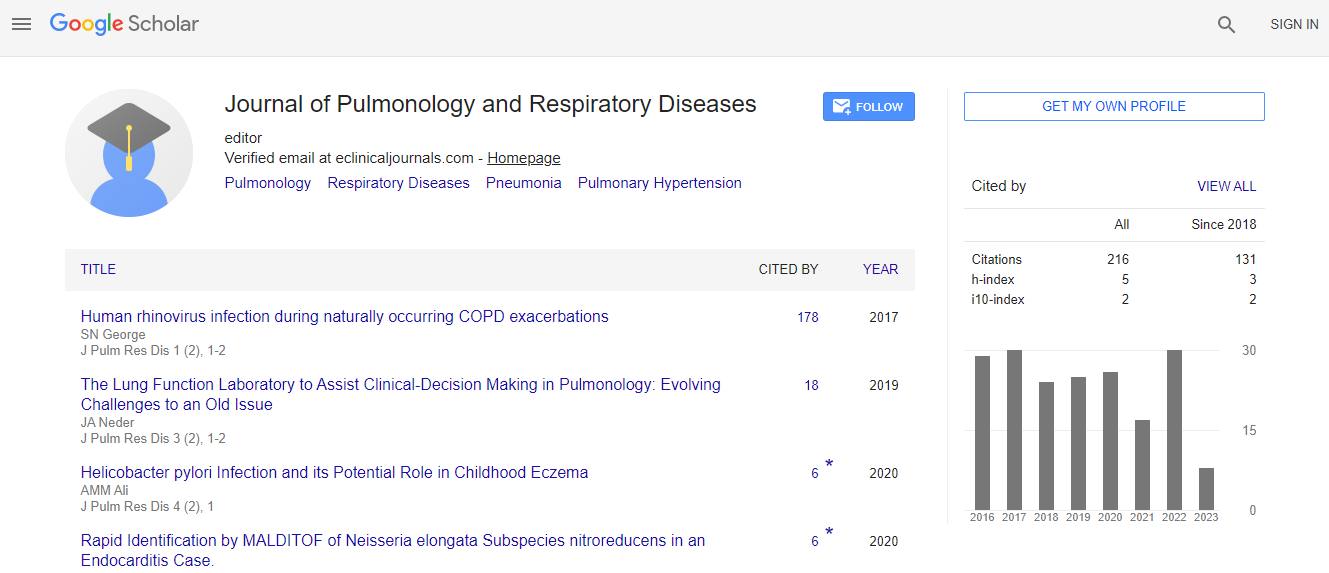Innovations in Early Detection of Chronic Obstructive Pulmonary Disease: A Comparative Analysis of Biomarker-Based Approaches
*Corresponding Author: Payal Das, Hospital Clinic, IDIBAPS, Universidad de Barcelona, CIBERes, Barcelona, Spain, Email: dpayal34@gmail.comReceived Date: Oct 01, 2024 / Published Date: Oct 31, 2024
Citation: Payal D (2024) Innovations in Early Detection of Chronic ObstructivePulmonary Disease: A Comparative Analysis of Biomarker-Based Approaches. JPulm Res Dis 8: 221.
Copyright: © 2024 Payal D. This is an open-access article distributed under theterms of the Creative Commons Attribution License, which permits unrestricteduse, distribution, and reproduction in any medium, provided the original author andsource are credited.
Abstract
Chronic obstructive pulmonary disease (COPD) is a leading cause of morbidity and mortality worldwide, necessitating early detection for effective management. This study explores the efficacy of various biomarkerbased approaches in the early diagnosis of COPD. We conducted a comparative analysis of existing biomarkers, including inflammatory cytokines, proteomic profiles, and genetic markers, assessing their sensitivity and specificity in identifying early-stage COPD. A cohort of high-risk individuals was monitored, with biomarker levels correlated to pulmonary function tests and clinical outcomes. Our findings indicate that a combination of specific inflammatory markers and proteomic signatures enhances early detection accuracy compared to traditional methods. Additionally, this approach facilitates personalized treatment strategies by identifying at-risk populations. This research underscores the potential of biomarker-based diagnostics in revolutionizing COPD management, paving the way for timely interventions that could significantly improve patient outcomes and reduce healthcare burdens associated with advanced disease stages. Further studies are warranted to validate these findings in diverse populations.

